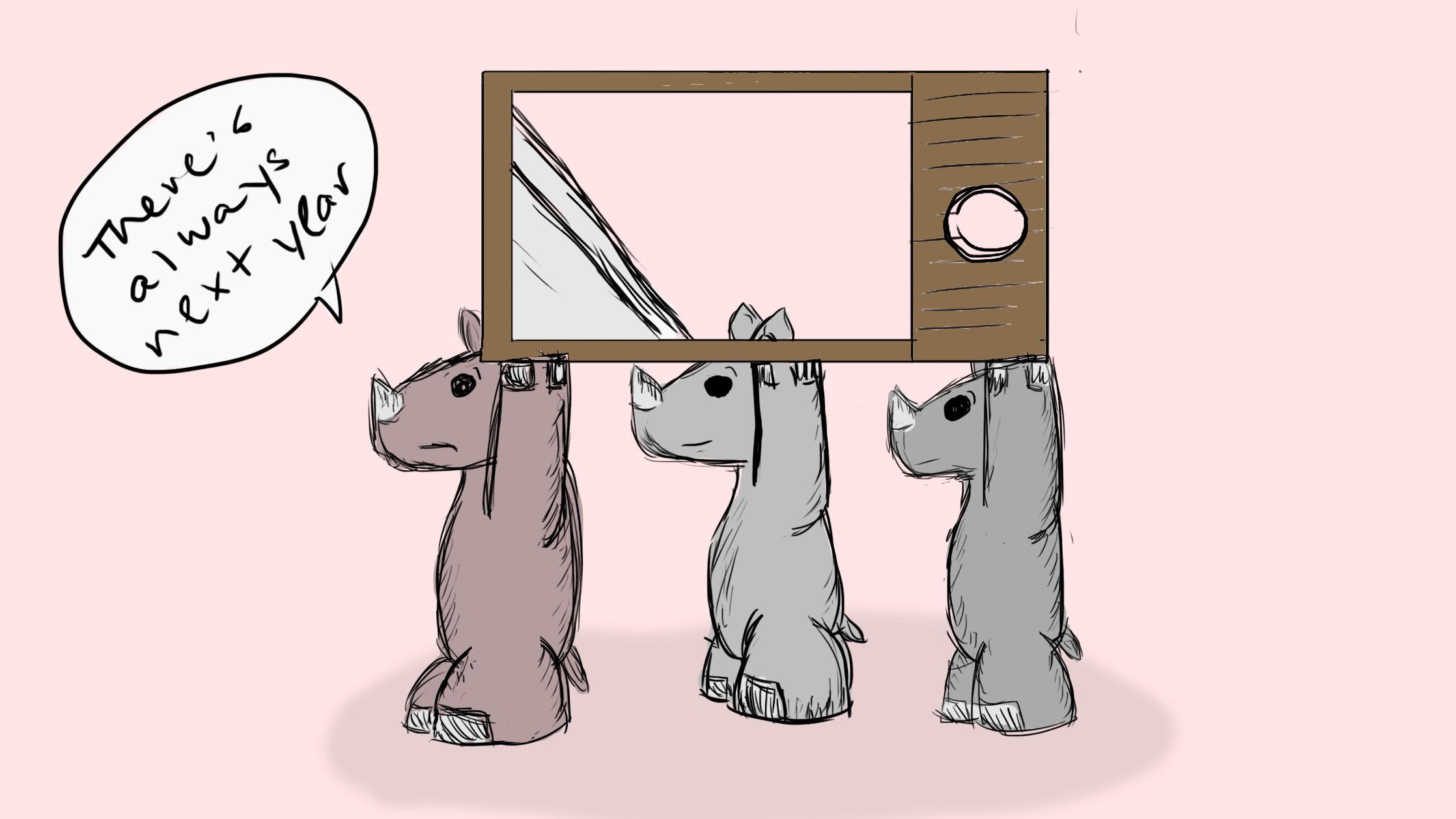By Charlie Buckley
It was a solemn day on Ryerson University’s campus this Wednesday. Voters for the newly for-real Rhino Party gathered on Gould Street to tear down their victory parade, complete with a freshly sharpened freedom guillotine, generously provided by Teamsters Union Local 1789.
The guillotine, affectionately referred to as the ‘Free-o-tine’ was part of a larger effort by the party to dismantle corruption in the Ryerson Students’ Union (RSU); the centre of Rhino’s platform. Amid budgetary reform and the reduction of RSU executive salaries, Rhino Party president Lewis Capet spent the entirety of his campaign preaching the violent and indiscriminate purge of Ryerson’s student government.
“It was all for the cause,” Capet said, polishing the device’s blade for storage until next January. “With the help of our Facebook ads and sticker-based marketing campaign, we Rhinos hoped to drain the swamp, and then decapitate all the toads.”
But unfortunately for Rhino, the swamp hasn’t lost a drop. Despite boasting a whole one seat claimed in the election, the RSU executive remains devoid of any and all Rhino candidates. Georgie Danton, a third-year media production student, hoped to revamp the vice-president education position to focus more on liberty, fraternity and equality. Means-of-production-seizing was at the core of haberdashery major Gracie Elliott’s vice-president student life platform. Were it not for those pesky competing parties, Elliott would have renamed the vice-president student life & events position to vice-president student liberty or death. If only.
“There’s always next year,” Capet said, showing characteristic optimism as he folded up the Louis Riel memorial headbasket. “We’re a new party; it took Napoleon 10 years; this kind of thing is a process. No promises yet, but I’ve got a good feeling about 2020. Read my lips: Heads will roll.”
This year, the RSU welcomes an executive of Unify party candidates with a platform of better events, more study spaces and reduced textbook costs. In a foreboding turn of events, renaming the Podium Building to La Bastille also lurks on their list.
Congratulations! If you’re reading this, you’ve made it to the end of this article. Full disclosure: none of what you just read is real. Satire is a noun that describes the use of humour, irony, exaggeration, or ridicule to expose and criticize people’s stupidity or vices, particularly in the context of contemporary politics and other topical issues. Do the world a favour, share this story and try not to take the Fun and Satire section so seriously—we certainly don’t.













Leave a Reply